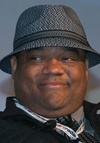SOCIAL MEDIA
Twitter’s not for them
I see Twitter as an essential tool for all reporters. The social media site has created an environment where journalists can communicate with readers while promoting their stories. Often it is childish and churlish, but I find that its benefits outweigh its annoyances.
It was interesting to hear journalists I respect bash Twitter during a panel session at the recent IMG World Congress of Sports in Los Angeles.
 |
WHITLOCK
|
ESPN’s Jason Whitlock, who has about 220,000 Twitter followers, said he views Twitter more as a promotional platform for his stories. He found it more necessary to participate on Twitter when he worked at the Kansas City Star, AOL Sports and Fox Sports. Now that he’s part of ESPN’s promotional machine, he says he uses Twitter much less frequently.
“When you work for ESPN, there’s less pressure because there’s so many platforms and so many different ways to get your content out there and get your perspective out there,” he said. “[Before I came back to ESPN], I did feel more of a pressure to build a good Twitter platform because I was looking for ways to get my content out nationally. Right now, I don’t see Twitter as all that important for what I do.”
Whitlock’s problem with Twitter is that too often it promotes stupid conversations and hot takes. Reporters too frequently engage in discussions on topics where they have little knowledge and print thoughts and ideas that would never make it past an editor.
 |
| KING |
“I see social media, and particularly Twitter, as something that’s pushing me and other journalists the wrong direction,” he said. “I probably spend the most of my time trying to fight the inertia of Twitter and social media because it pushes you to have the instantaneous take and the instantaneous opinion. That’s not something I’ve ever really been that concerned with or interested in doing.”
Sports Illustrated’s Peter King said the problems Whitlock described are not unique to social media. They are happening in all corners of media. As an example, King referenced the NFL scouting combine. In 2000, he was one of 15 reporters. This year, he was one of 1,017.
“You have to basically say, ‘How can I be different? How can my voice be heard? What can I do that’s going to make any sort of difference in this cacophony of crapola that is out there in the media these days?’” he said. “That becomes a challenge.”
 |
| OLIVER |
Fox Sports reporter Pam Oliver, who has nearly 4,000 Twitter followers despite not having tweeted since November, said she’s resisted getting involved in social media even though Fox Sports executives want her to be more involved.
“I don’t really care for it,” she said. “I feel like we have to get back to where it is pure. Journalism is pure. You don’t have to buy into every single thing that comes down the pike.”
ESPN’s John Walsh said social media still is in its embryonic stages and will go through many big changes as it grows older.
“Social media is a heyday for future historians,” he said. “We’re living in an era which is the greatest media era since the invention of the Gutenberg press. The idea that we’re going to be able to reach conclusions and have definitive answers about what social media is — you look at Twitter and you say, ‘Is it promotion? Is it advertising? Is it content? Is it newsbreaking?’ It’s defining itself over a period of time.”






